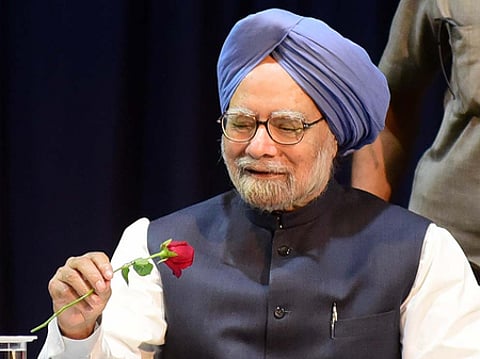Dr Manmohan Singh: A humane economist whose deeds spoke far more than his words
Dr Manmohan Singh, the trailblazer of India’s new economic policy, is no more. Economists around the world remember him for his brilliance and humility, and predominantly for his role in opening up a state-controlled Indian economy from the brink of macroeconomic crisis to a transformative global economy, when he was appointed Finance Minister in 1991.
The NIPFP (the think tank of the Ministry of Finance, Government of India, where I work) had immense opportunities to work with him closely; and my former Chairman Dr C Rangarajan was the Chairman of PMEAC then. It is interesting to recall that in 2004, when Dr Manmohan Singh was named as Prime Minister, with P Chidambaram as Finance Minister, and Dr Montek Singh Ahluwalia was Planning Commission Vice Chairman, India was embarking on a Common Minimum Programme with the dual objectives of economic growth and equity.
I remember it was a tough call, given the constrained fiscal space for expenditure design for the poor under the new fiscal rules and fiscal consolidation to contain the mounting fiscal deficits. Making efforts to phase out the revenue deficit, while designing innovative revenue spending for MNREGA to ensure job guarantee schemes for the first time ever at the national government level, was a tough call, during his regime. For Dr Singh, MNREGA was a scheme for respecting “labour rights” as well as to reduce poverty and inequality.
Singh’s 1991 new economic policies, though hailed as unparalleled economic reforms in the history of India, received criticism that the newfound globalization led to widening inequalities within India. However, his policies focusing on social infrastructure, especially education (especially rights-based education reforms RTE) and health, are praiseworthy in correcting these inequalities.
As economists, we enjoyed his emphasis on fiscal transparency and accountability to link the “resources” to “results”. Dr Singh led his government to adopt transparency in governance by adopting RTI. These transparency and accountability initiatives through RTI helped the citizens to have a say by exercising their right in governance.
Later, it led to the formation of new political movements and political parties in India.
In his second term in office, Dr Singh started to get criticisms about the deals happening in the country when CAG Vinod Rai came up with statements about fiscal accountability. This coincided with plummeting economic growth and mounting inflation. His silence during that time was attacked by Simon Denyer, the New Delhi bureau chief of the Washington Post, which created havoc.
I wrote a piece about the links between the leader’s “silence” and economic growth in the Levy Economics Institute of Bard College, New York, where I was affiliated to. An exciting research on the new way of analyzing the links between the Finance Minister and quality of deficits; central bank chief’s personality and interest rates (hawkish or dovish); and PM and GDP growth were on board at that time and it was compelling for me to ask such questions about the links between the “silent” PM and economic growth.
Along with “employer of last resort policies”, the policy solace during that time was the continuous work happening in India towards digital India, in coordination with Nandan Nikelani, which led to the Aadhaar revolution. My colleagues at NIPFP worked on various projects related to digital infrastructure in public finance, with the Finance Ministry and the Planning Commission, and submitted technical reports.
India also embarked into gender budgeting by integrating a gender lens into macroeconomic policies during this time. The 2004-05 Union Budget institutionalized gender budgeting within the Ministry of Finance, based on the NIPFP methodology. In 2010, when a young girl was brutally raped and killed in a public transport in Delhi, his government performed within 30 days producing a report, with “Bill of Rights” for gender equality. And the budget for the first time acknowledged this brutality against women, and allocated significant money for women’s safety and security under the gender budget.
These are clearly the initiatives taken by him “beyond the GDP paradigm” towards human development.
My last exposure to Dr Manmohan Singh was when I got an opportunity to understand his take on Indian fiscal federalism in 2019, prior to the Covid pandemic. He was very concerned about the Terms of Reference of the 15th Finance Commission. He was very worried about the “unilateralism”, which he believed was not good for a federal polity and cooperative federalism. He alerted that a strong feeling exists in contemporary India that the central government is “trying to rob the states of its due resources”, while addressing a national conference organized by the Gulati Institute of Finance and Taxation (GIFT) on the Additional Terms of Reference of the 15th Finance Commission at Gulmohar Hall, India Habitat Centre, New Delhi.
Dr Singh is indelibly imprinted in my mind as a humane economist, whose deeds spoke far more than his words. History will definitely be kind to him, taking note of the fact that “Don’t play everything (or every time); let some things go by … What you don’t play can be more important than what you do.”
(The author is Professor, NIPFP, and Governing Board Member, International Institute of Public Finance, Munich)

